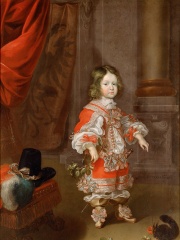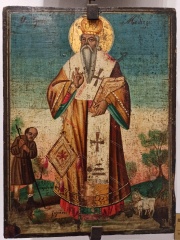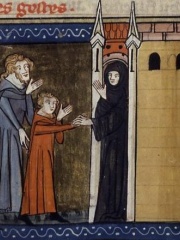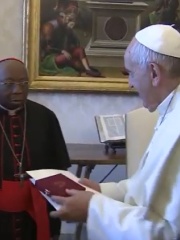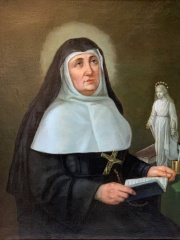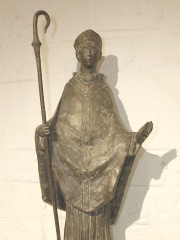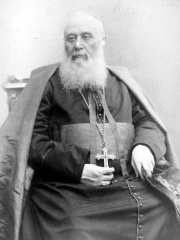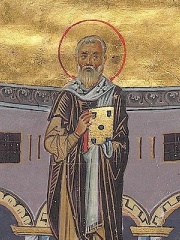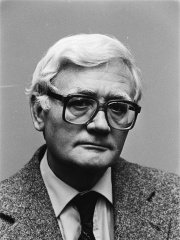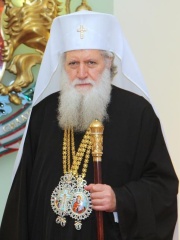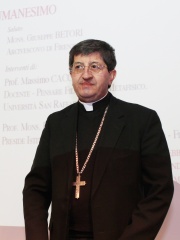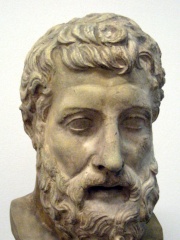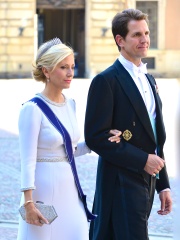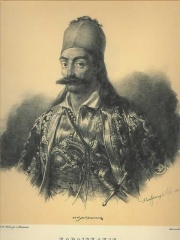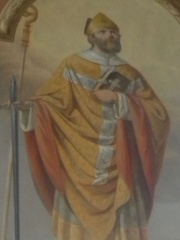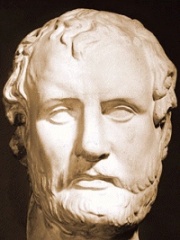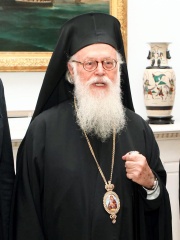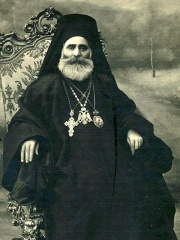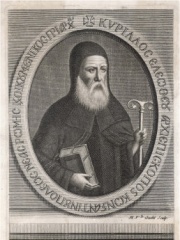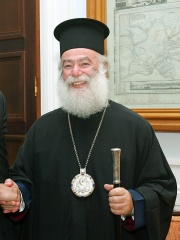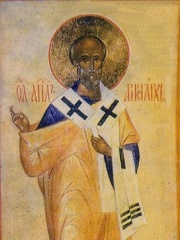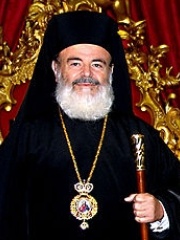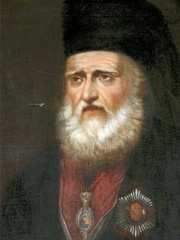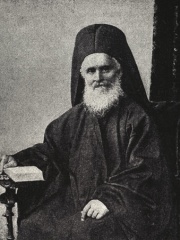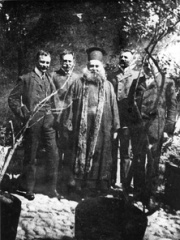Personnalité religieuse
Demophon of Eleusis
FR.WIKIPEDIA PAGE VIEWS (PV)

 Demophon of Eleusis
Demophon of Eleusis
Sa biographie est disponible en 19 langues sur Wikipédia. Demophon of Eleusis est le 1,714th personnalité religieuse le plus populaire (en hausse du 2,779th en 2024), la 460th biographie la plus populaire de Grèce (en hausse du 784th en 2019), ainsi que le 31st personnalité religieuse de Grèce le plus populaire.
Memorability Metrics
Page views of Demophon of Eleusis by language
Among Personnalité religieuses
Among personnalité religieuses, Demophon of Eleusis ranks 1,714 out of 3,187. Before him are Archduke Charles Joseph of Austria, Modestus of Jerusalem, Marina the Monk, Júlio Duarte Langa, Jeanne de Lestonnac, and Adalbert of Hamburg. After him are Charles Lavigerie, Amphilochius of Iconium, Edward Schillebeeckx, Asma bint Umais, Neophyte of Bulgaria, and Giuseppe Betori.
Most Popular Personnalité Religieuses in Wikipedia
Go to all RankingsArchduke Charles Joseph of Austria
1649 - 1664
HPI: 62.25
Rank: 1,708
Modestus of Jerusalem
537 - 634
HPI: 62.24
Rank: 1,709
Marina the Monk
715 - 750
HPI: 62.24
Rank: 1,710
Júlio Duarte Langa
1927 - Present
HPI: 62.24
Rank: 1,711
Jeanne de Lestonnac
1556 - 1640
HPI: 62.23
Rank: 1,712
Adalbert of Hamburg
1000 - 1072
HPI: 62.23
Rank: 1,713
Demophon of Eleusis
HPI: 62.23
Rank: 1,714
Charles Lavigerie
1825 - 1892
HPI: 62.23
Rank: 1,715
Amphilochius of Iconium
339 - 394
HPI: 62.22
Rank: 1,716
Edward Schillebeeckx
1914 - 2009
HPI: 62.22
Rank: 1,717
Asma bint Umais
HPI: 62.21
Rank: 1,718
Neophyte of Bulgaria
1945 - 2024
HPI: 62.21
Rank: 1,719
Giuseppe Betori
1947 - Present
HPI: 62.20
Rank: 1,720
In Grèce
Among people born in Grèce, Demophon of Eleusis ranks 460 out of NaN. Before him are Agoracritus (-500), Şerif Gören (1944), Podalirius (null), Hermarchus (-325), Archelaus of Sparta (-790), and Pavlos, Crown Prince of Greece (1967). After him are Posidippus (-310), Georgios Karaiskakis (1780), Kostas Karamanlis (1956), Victorinus of Pettau (250), Haris Alexiou (1950), and Eupolis (-446).
Others born in Grèce
Go to all RankingsAgoracritus
SCULPTOR
500 BC - 500 BC
HPI: 62.30
Rank: 454
Şerif Gören
FILM DIRECTOR
1944 - 2024
HPI: 62.29
Rank: 455
Podalirius
PHYSICIAN
HPI: 62.28
Rank: 456
Hermarchus
PHILOSOPHER
325 BC - 250 BC
HPI: 62.27
Rank: 457
Archelaus of Sparta
POLITICIAN
790 BC - 760 BC
HPI: 62.25
Rank: 458
Pavlos, Crown Prince of Greece
POLITICIAN
1967 - Present
HPI: 62.24
Rank: 459
Demophon of Eleusis
RELIGIOUS FIGURE
HPI: 62.23
Rank: 460
Posidippus
WRITER
310 BC - 240 BC
HPI: 62.22
Rank: 461
Georgios Karaiskakis
MILITARY PERSONNEL
1780 - 1827
HPI: 62.21
Rank: 462
Kostas Karamanlis
POLITICIAN
1956 - Present
HPI: 62.20
Rank: 463
Victorinus of Pettau
WRITER
250 - 303
HPI: 62.20
Rank: 464
Haris Alexiou
SINGER
1950 - Present
HPI: 62.19
Rank: 465
Eupolis
WRITER
446 BC - 411 BC
HPI: 62.19
Rank: 466
Among Personnalité religieuses In Grèce
Among personnalité religieuses born in Grèce, Demophon of Eleusis ranks 31. Before him are Anastasios of Albania (1929), Meletius IV of Constantinople (1871), Philotheus I of Constantinople (1300), Dionysius of Corinth (150), Cyril Lucaris (1572), and Patriarch Theodore II of Alexandria (1954). After him are Aristarchus of Thessalonica (5), Nephon II of Constantinople (1450), Christodoulos of Athens (1939), Eugenios Voulgaris (1716), Anthimus VII of Constantinople (1827), and Gregory VII of Constantinople (1850).
Anastasios of Albania
1929 - 2025
HPI: 64.27
Rank: 25
Meletius IV of Constantinople
1871 - 1935
HPI: 64.10
Rank: 26
Philotheus I of Constantinople
1300 - 1379
HPI: 63.97
Rank: 27
Dionysius of Corinth
150 - 171
HPI: 63.78
Rank: 28
Cyril Lucaris
1572 - 1638
HPI: 63.62
Rank: 29
Patriarch Theodore II of Alexandria
1954 - Present
HPI: 63.51
Rank: 30
Demophon of Eleusis
HPI: 62.23
Rank: 31
Aristarchus of Thessalonica
5 - 100
HPI: 61.69
Rank: 32
Nephon II of Constantinople
1450 - 1508
HPI: 61.43
Rank: 33
Christodoulos of Athens
1939 - 2008
HPI: 60.96
Rank: 34
Eugenios Voulgaris
1716 - 1806
HPI: 60.63
Rank: 35
Anthimus VII of Constantinople
1827 - 1913
HPI: 60.54
Rank: 36
Gregory VII of Constantinople
1850 - 1924
HPI: 60.38
Rank: 37
